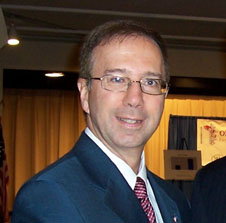(Rome, NY – Oct. 2014) Recent national headlines have put a spotlight on a growing menace to society’s well-being: domestic violence.
Sadly, our area is not immune. Last year, police agencies in the counties I represent – Oneida, Lewis and St. Lawrence – reported 2,308 victims of domestic violence. The overwhelming majority involved physical abuse.
Domestic violence impacts every demographic: women and men; young and old; poor and rich; rural and city. It rips apart families and the emotional scars left behind never heal as fast as the physical wounds.
The Legislature has worked in a bipartisan manner to provide more protection for victims and impose stiffer penalties for people who commit these hideous crimes. This includes expanding the definition of stalking to include the use of a GPS or other electronic device to track a victim. The law was prompted by the senseless murder of a Western New York woman by her boyfriend, who was monitoring her movements with a tracker.
I realize more work must be done, which is why I’ll continue to advocate for better education and coordination among domestic violence prevention services, for more ways to keep abusers away from their victims and for harsher sentences for those who continue to perpetuate this cycle of violence.
As October is Domestic Violence Awareness Month, I thank the providers already helping victims and encourage survivors and their loved ones to call any of the following numbers for help:
Lewis County Opportunities: 376-HELP (4357)
Oneida County Department of Social Services Domestic Abuse Liaison: 798-5951
YWCA Mohawk Valley Domestic Violence/Sexual Violence Services: 797-7740
St. Lawrence Valley Renewal House: 379-9845
National Domestic Violence Hotline: 1-800-799-SAFE
Randy White, a expert on domestic violence who works for the Oakland Police Department, has developed a research-based safety plan for victims of domestic violence. The entire document can be found at: http://bit.ly/DVSafetyPlan
Here is some of the advice:
- Don’t judge the victim.
- Avoid telling the victim that they need to leave; instead, discuss a safety plan.
- Don’t insult the abuser. It might make the victim feel as if they have to defend him or her.
- Assure the victim that you will keep what they tell you confidential.
- Let them know that you’re afraid for their safety and the safety of their children; that this is not their fault; that even if an abuser apologizes, it does not stop the abuse; and that they are not alone.
- Inform them that abusers usually snoop on their victims to learn what they are doing and who is supporting them.
- Let them know that their abuser will likely try to isolate them from anyone who is supportive.
- Encourage the victim to document everything that happened, including an account of how they were injured. Suggest that the victim get medical treatment.
- Tell the victim about their local domestic program.
- Offer the victim a safe place, if this is realistic, or help him or her find one.


